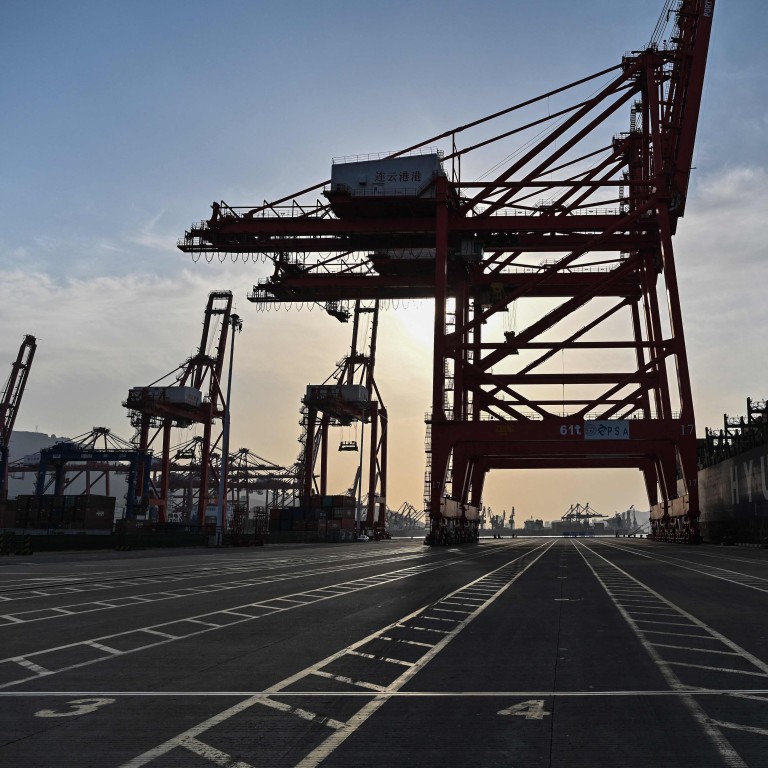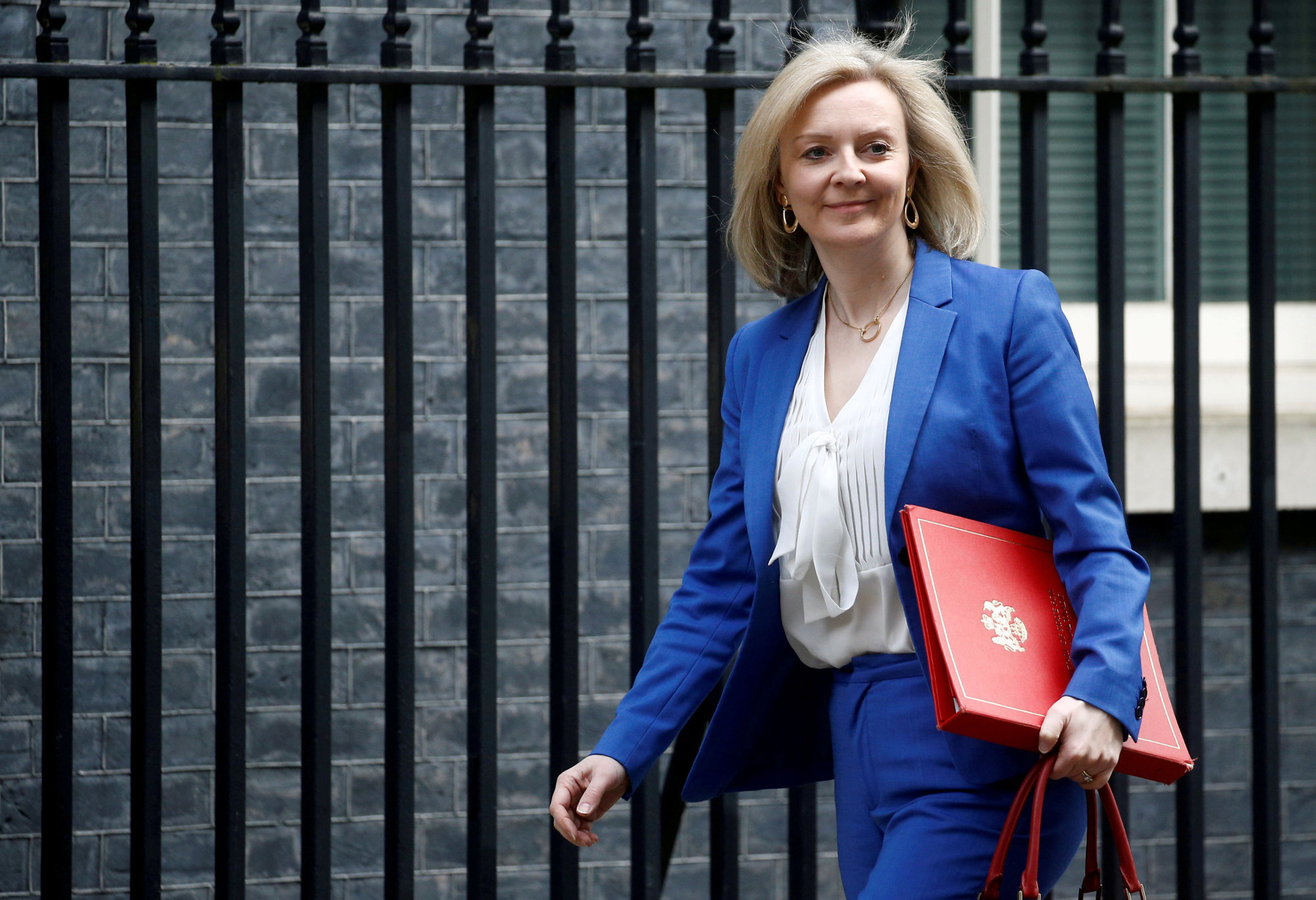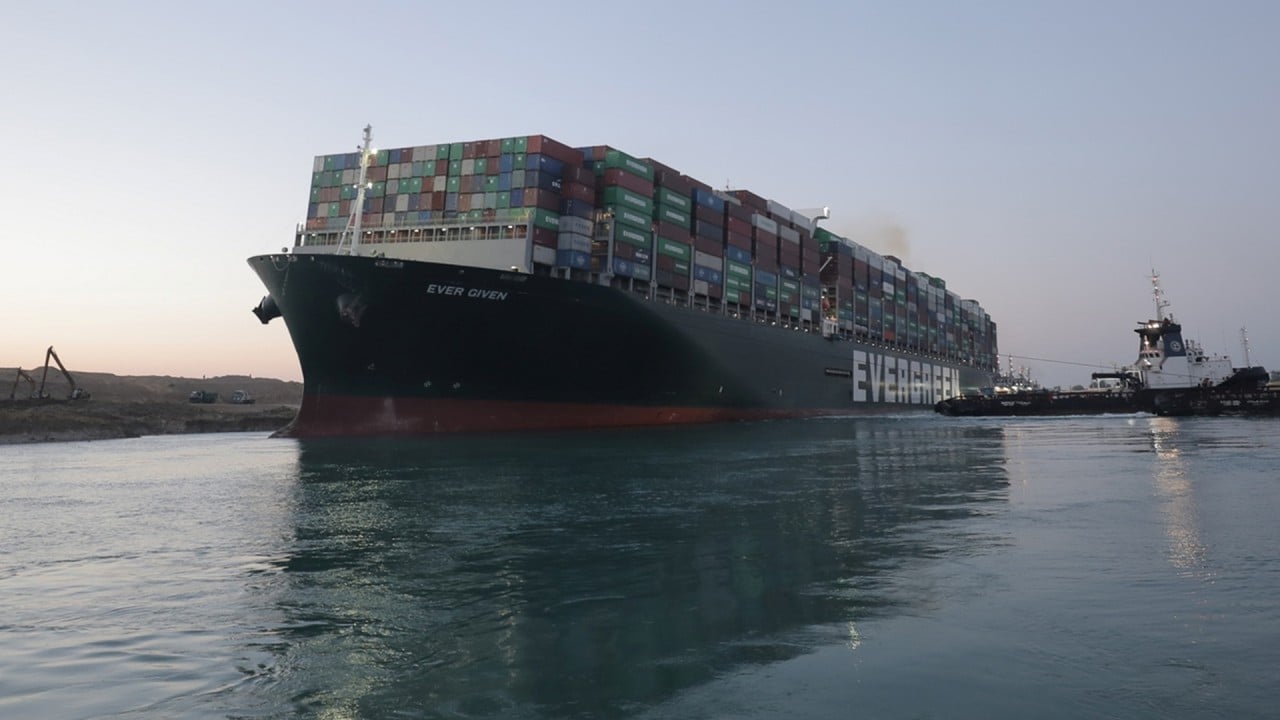
WTO revises global trade forecast higher, as stimulus keeps demand intact and China dominates exports
- Global merchandise trade is expected to rise by 8 per cent this year
- WTO officials warn that the lopsided distribution of vaccines globally presents the biggest risk to a full recovery in global trade
Global merchandise trade is expected to rise by 8 per cent this year, making up for a decline last year caused by the coronavirus pandemic as stimulus in the US and other countries has kept demand intact, the World Trade Organization (WTO) announced on Wednesday.
The WTO’s growth forecast, in which China accounts for the lion’s share of global exports, was increased from a previous estimate of 7.2 per cent, while it pegged the full-year 2020 decline at 5.3 per cent, which was less severe than the 9.2 per cent drop estimated in October.
China’s exports of US$2.6 trillion worth of goods last year represented a 4 per cent increase on year, compared with US$1.4 trillion worth of exports from the US, the second-largest exporter, which saw a 13 per cent drop.
“China has been supplying a lot of the goods in 2020 that demand held up quite well for,” including surgical masks and other medical supplies, said senior WTO economist Coleman Nee.
“Then there’s also electronics, which China is a major exporter of, and because of increased work remote work and businesses making allowances for working remotely, there’s been a lot of upgrading of equipment in that regard,” he said.
“So China is still has its important position in all of these products for which demand has remained strong … and will probably remain strong as we exit the pandemic.”
However, the Geneva-based trade body added that trade growth would likely slow to 4.0 per cent in 2022, owing to a continuance of the effects of the pandemic.
China pushed to ‘poach’ Taiwan’s semiconductor technology, economy minister says
WTO officials warned that the lopsided distribution of vaccines globally, favouring just 10 wealthy countries including the US so far, presents the biggest risk to a full recovery in global trade.
If vaccine production does not keep up with demand worldwide, “and/or new variants of the virus emerge against which vaccines are less effective”, global GDP could fall by 1 percentage point in 2021 and lower trade growth by nearly 2 percentage points, according to the WTO’s press release.
“Only by ramping up production of vaccines and making them more widely available can we hope to get the world economy back to full speed,” WTO Director General Ngozi Okonjo-Iweala told reporters. “The possibility that many countries will be left behind as we emerge from the crisis is a major concern.”
Moody’s Analytics issued a similar assessment last week.
“The outlook for 2021 crucially depends on the pace of the global vaccine roll-out,” the research group said in a report last week. “While infection rates have continued to decline across most regions, the risks of new and intense outbreaks remain elevated, which make it imperative to expedite the implementation process. On this front, progress varies substantially across regions.
“Given the diverging regional trends, there is a high degree of uncertainty regarding the timing of achieving herd immunity globally. Our projections suggest that this is unlikely to occur before mid-2024,” it added.
Global trade is at a tipping point for other reasons, including trade tensions between China and the West that continue to ratchet up.
Hong Kong does not warrant special US status, Antony Blinken reaffirms
The WTO’s report comes on the same day that Okonjo-Iweala is set to join the Group of 7 (G7) meeting of trade ministers, hosted by Britain.
Liz Truss, the British trade secretary, is set to use the meeting to encourage the powerful group to “get tough” on China, while a statement released ahead of the meeting suggests the WTO will perform a key role in this.

On the agenda will be WTO reform, namely “championing the cause of values-driven free trade and work with G7 partners to challenge practices that distort markets”.
“As president of the G7, the UK will use the meeting to push for the reform of the WTO, so the organisation is fit to challenge unfair trading practices as well as ensuring trade helps tackle climate change,” said Truss’ statement.
Truss’ advances are likely to find a favourable audience with at least a few of the trade ministers there.
France, Germany and Italy – as well as Valdis Dombrovskis, the EU trade commissioner who will be there – will be spoiling from China’s sanctioning of their ambassadors to Brussels last week, as part of a broad retaliatory campaign by Beijing that also hit a host of elected European parliamentarians.
Coronavirus: EU says ‘no evidence’ to restrict use of AstraZeneca vaccine
Japan has long had its trade issues with China, and is part of a trilateral group with the EU and US that is pushing for stronger controls on industrial subsidies at the WTO, in a move widely seen as being directed at China.
Britain itself, meanwhile, was the recipient of Chinese sanctions on a range of individuals and entities last week in response to embargoes it slapped on four Xinjiang officials and one entity for alleged human rights abuses.
“People cannot believe in free trade if it is not fair. Public trust has been corroded by pernicious practices, from the use of forced labour to environmental degradation and the stealing of intellectual property,” Truss’ statement continued.
Also making their G7 debut will be newly installed US Trade Representative Katherine Tai, who said in an interview with The Wall Street Journal this week that she would not be in a rush to lift trade tariffs on Chinese-made goods.
“No negotiator walks away from leverage, right?” Tai said.



